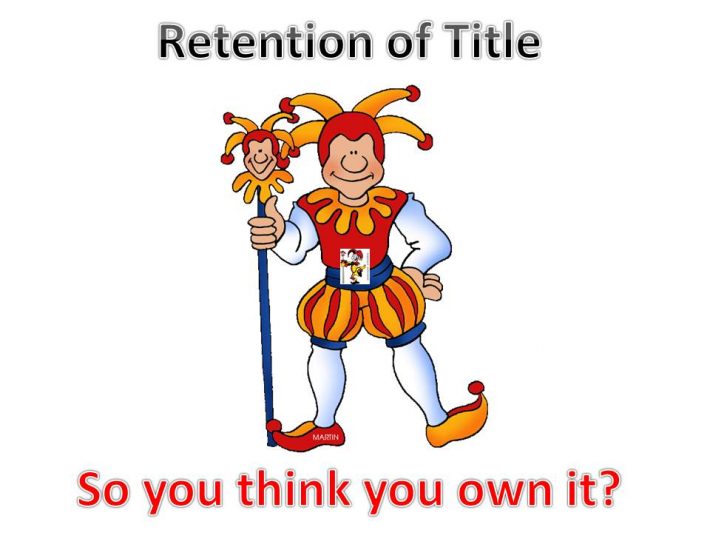
RETENTION OF TITLE – PROCUREMENT ACTIONS (1)
Retention of Title (ROT) clauses have appeared in our professional life again. These clauses are often referred to as ‘Romalpa’ clauses. We thought the implications and existence of these clauses were widely known. This is not the case. Our client’s finance and procurement people were oblivious to the implications of have ROT clauses on the supplier’s terms.
What is an ROT clause? The most basic clause is where the supplier reserves title in the goods until the consignment is paid for. A more complex clause is where property in all goods supplied is retained until all debts owed to the supplier, by the buyer, are discharged.
Sub-clauses that are possible are (i) a tracing clause which lays claim to resale proceeds, (ii) a mixing clause which lays claim to the mixed or manufactured product to which the goods supplied have been added, (iii) a following clause which extend the claim to the goods (or their product) in third party hands.
There is a wealth of English case law including: (1) Aluminium Industrie Vaassen BV v Romalpa Aluminium Ltd (1976) 1 WLR 676; (2) Borden (UK) Ltd v Scottish Timber Products Ltd (1981) Ch 25,42; Clough Mill Ltd v Martin (1985) 1 WLR.
The challenge for procurement staff is to understand if ‘Romalpa’ is a contractual term, or not. It is common practice for suppliers to include a statement on invoices, drawing attention to the fact that ‘Romalpa’ is incorporated in the contract. This practice could fill a court room, but the probability is that if the statement isn’t challenged by the Buyer ‘Romalpa’ will be incorporated. The courts have recognised that contracts can be formed in the course of dealing such as purchase order acknowledgements and invoices. If the buyer does not object it is probable that ‘Romalpa’ will be incorporated.
It may be recognised that Section 17(1) of the Sale of Goods Act 1979 provides that it is for the parties to determine when property will pass where goods are agreed to be sold. Under the Sale of Goods Act Section 17(2) ‘property in the goods is an abstract concept which equates to ownership, as distinct from possession.
Read More , EXPLAINING PRACTICAL IMPLICATIONS OF ‘ROMALPA’

